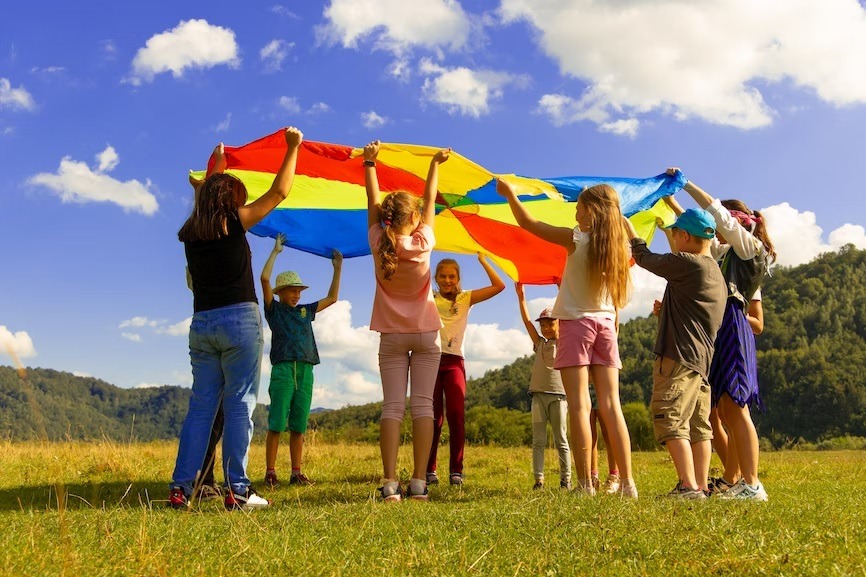In today’s interconnected world, positive relationships are essential for personal growth and well-being. As children navigate their way through school, friendships, and family dynamics, it becomes crucial to equip them with the necessary life skills for healthy interactions.
By teaching children these skills from an early age, we can empower them to build positive relationships, communicate effectively, resolve conflicts, and cultivate empathy.
As stated in an article by the Mental Health Foundation, establishing positive relationships is crucial for fostering healthy development in children and providing them with a strong foundation for a successful life. When children engage in positive relationships, they acquire valuable skills to regulate their emotions and behaviors while also enhancing their ability to connect with others.
In this article, we will explore various life skills that can be taught to children to promote positive relationships, each with its own set of benefits and techniques.
Effective Communication
Effective communication, including problem-solving for kids, lies at the heart of all relationships. Teaching children the importance of active listening, expressing themselves clearly, and understanding non-verbal cues can significantly enhance their ability to connect with others and solve problems.
Friendzy has emphasized that by encouraging open and respectful communication, children learn to express their thoughts and emotions while also being receptive to the perspectives of others. Role-playing exercises, discussions, and storytelling are effective tools to teach effective communication skills to children.
Understanding Others’ Perspectives
Empathy is a vital skill that helps children understand and share the feelings of others. By cultivating empathy, children develop a sense of compassion and consideration for others’ emotions, which forms the basis for healthy relationships.
As highlighted by a post on the World Economic Forum, it has been proven that empathy is a skill that can be learned. Extensive research indicates that reading plays a significant role in fostering empathy among children. Encouraging them to recognize and validate the emotions of their peers fosters a supportive environment.
Furthermore, engaging children in open discussions about diverse perspectives and encouraging them to step into others’ shoes can deepen their understanding and empathy. By promoting empathy from an early age, we equip children with invaluable tools for building a more empathetic and understanding society in the future.
Nurturing Self-Awareness
Emotional regulation is the ability to manage and express emotions appropriately. Teaching children to identify and regulate their emotions enables them to navigate social situations with greater ease.
Techniques like deep breathing, mindfulness exercises, and teaching them to express their emotions through words instead of aggression or withdrawal can aid in developing emotional regulation skills.
When children are equipped with the ability to understand and manage their own emotions, they can respond to others in a more empathetic and understanding manner.
Conflict Resolution
Conflict is a natural part of any relationship, and teaching children how to resolve conflicts constructively can foster healthier interactions. By teaching negotiation skills, active listening, and encouraging compromise, children can learn to find win-win solutions that satisfy everyone involved.
Role-playing conflict scenarios, mediating discussions, and teaching problem-solving techniques equip children with the skills they need to navigate conflicts effectively while maintaining positive relationships.
According to an article by the Child Mind Institute, children need to learn clear communication of feelings without lashing out or making accusations to resolve conflicts. Discussing communication skills with kids outside of conflicts is recommended.
Building Trust and Mutual Understanding
Respect for oneself and others is crucial for establishing healthy relationships. Teaching children about personal boundaries, consent, and the importance of treating others with kindness and dignity lays the foundation for respectful interactions.
Engaging children in activities that promote empathy, discussing the concept of personal space, and modeling respectful behavior help children understand the importance of boundaries and build trust in their relationships.
Mutual understanding is a crucial aspect of fostering harmonious relationships. It involves actively listening, empathizing, and seeking to comprehend the perspectives, beliefs, and emotions of others. By striving for mutual understanding, individuals can bridge gaps in communication and cultivate a sense of empathy and respect.
Final Thoughts
Equipping children with life skills for healthy interactions is vital in today’s interconnected world. The ability to communicate effectively, understand others’ perspectives, regulate emotions, resolve conflicts, and build trust lays the groundwork for positive relationships and personal development.
By emphasizing these skills from an early age, we empower children to navigate diverse social environments with empathy, respect, and resilience. Furthermore, fostering these abilities cultivates a generation that values open dialogue, compassion, and understanding, leading to a more harmonious and inclusive society.
By investing in teaching these life skills, we create a positive ripple effect that extends far beyond individual interactions, ultimately shaping a brighter future for all.
